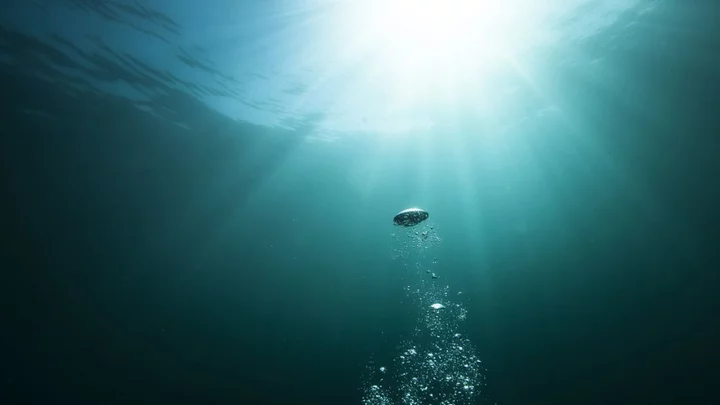
Scientists found the oldest water on the planet and drank it
If you found water that was more than two billion years old, would your first instinct be to drink it? One scientist did exactly that after finding the oldest water ever discovered on the planet. A team from the University of Toronto, led by Professor Barbara Sherwood Lollar, came across an incredible find while studying a Canadian mine in 2016. Tests showed that the water source they unearthed was between 1.5 billion and 2.64 billion years old. Given that it was completely isolated, it marked the oldest ever found on Earth. Sign up to our free Indy100 weekly newsletter Remarkably, the tests also uncovered that there was once life present in the water. Speaking to BBC News, professor Sherwood Lollar said: “When people think about this water they assume it must be some tiny amount of water trapped within the rock. “But in fact it’s very much bubbling right up out at you. These things are flowing at rates of litres per minute – the volume of the water is much larger than anyone anticipated.” Discussing the presence of life in the water, Sherwood Lollar added: “By looking at the sulphate in the water, we were able to see a fingerprint that’s indicative of the presence of life. And we were able to indicate that the signal we are seeing in the fluids has to have been produced by microbiology - and most importantly has to have been produced over a very long time scale. “The microbes that produced this signature couldn’t have done it overnight. This has to be an indication that organisms have been present in these fluids on a geological timescale.” The professor also revealed that she tried the water for herself – but how did it taste? “If you’re a geologist who works with rocks, you’ve probably licked a lot of rocks,” Sherwood Lollar told CNN. She revealed that the water was "very salty and bitter" and "much saltier than seawater." Have your say in our news democracy. Click the upvote icon at the top of the page to help raise this article through the indy100 rankings.
2023-06-20 14:55
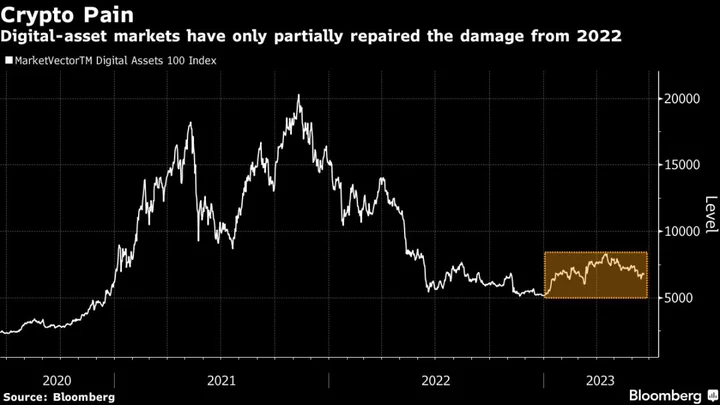
Japan’s Crypto Exchanges Are Pushing for Looser Margin Trading Rules to Help the Sector Grow
Japan’s crypto exchanges are pushing for a relaxation of curbs on margin trading, unbowed by last year’s global
2023-06-20 11:17

Blinken’s China Trip Achieves Best Possible Outcome: More Talks
Secretary of State Antony Blinken got a muted reception when he arrived in Beijing: a lone Foreign Ministry
2023-06-20 09:23
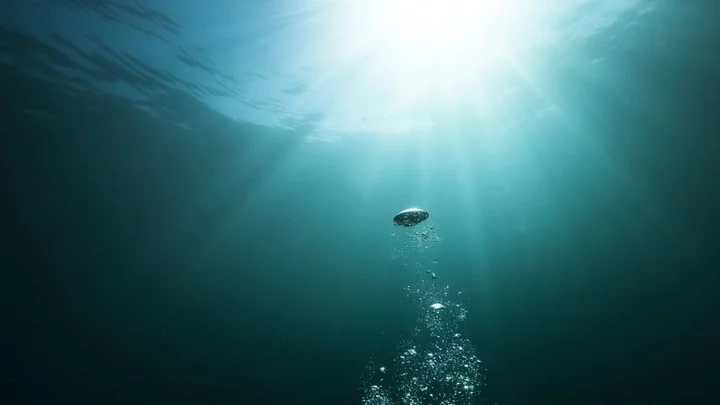
A scientists found the oldest water on the planet and drank it
If you found water that was more than two billion years old, would your first instinct be to drink it? One scientist did exactly that after finding the oldest water ever discovered on the planet. A team from the University of Toronto, led by Professor Barbara Sherwood Lollar, came across an incredible find while studying a Canadian mine in 2016. Tests showed that the water source they unearthed was between 1.5 billion and 2.64 billion years old. Given that it was completely isolated, it marked the oldest ever found on Earth. Sign up to our free Indy100 weekly newsletter Remarkably, the tests also uncovered that there was once life present in the water. Speaking to BBC News, professor Sherwood Lollar said: “When people think about this water they assume it must be some tiny amount of water trapped within the rock. “But in fact it’s very much bubbling right up out at you. These things are flowing at rates of litres per minute – the volume of the water is much larger than anyone anticipated.” Discussing the presence of life in the water, Sherwood Lollar added: “By looking at the sulphate in the water, we were able to see a fingerprint that’s indicative of the presence of life. And we were able to indicate that the signal we are seeing in the fluids has to have been produced by microbiology - and most importantly has to have been produced over a very long time scale. “The microbes that produced this signature couldn’t have done it overnight. This has to be an indication that organisms have been present in these fluids on a geological timescale.” The professor also revealed that she tried the water for herself – but how did it taste? “If you’re a geologist who works with rocks, you’ve probably licked a lot of rocks,” Sherwood Lollar told CNN. She revealed that the water was "very salty and bitter" and "much saltier than seawater." Have your say in our news democracy. Click the upvote icon at the top of the page to help raise this article through the indy100 rankings.
2023-06-19 22:57

Montenegro court jails 'cryptocurrency king' Do Kwon for four months - media
SARAJEVO A court in Montenegro has sentenced cryptocurrency entrepreneur Do Kwon, who is charged in the U.S. with
2023-06-19 21:18
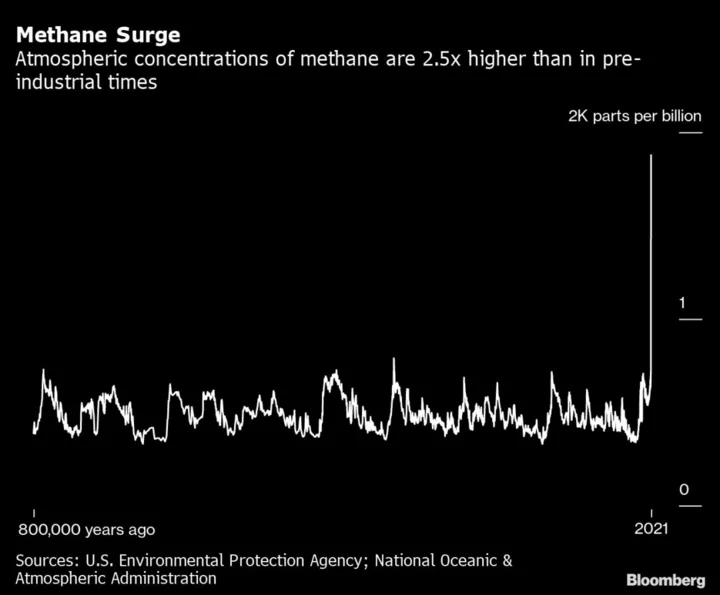
A Cheap Fix to Global Warming Is Finally Gaining Support
Global support for one of the cheapest and most powerful climate actions is accelerating — and it couldn’t
2023-06-19 17:23
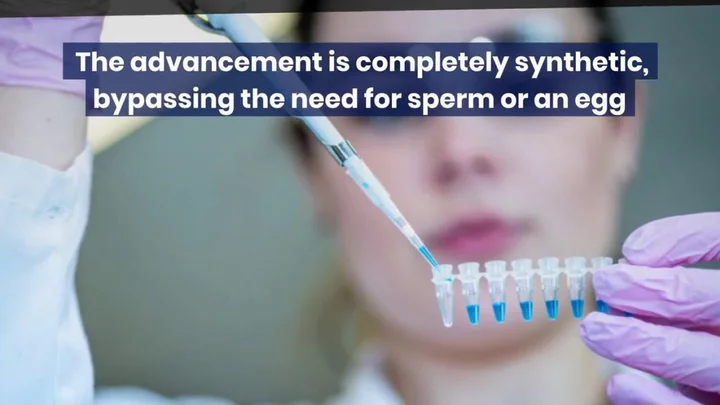
Scientists create human embryo with a heartbeat without using sperm or eggs
Scientists have created a model human embryo to study the first weeks of life, complete with a heartbeat and traces of blood. The synthetic embryo was created with human stem cells and did not require sperm, eggs or fertilisation. It mimics the structure that occurs during the first month of pregnancy. Yet, scientists ensured it was designed to not form a foetus. Researchers involved in the extraordinary project discovered that the model had early stages of developing a brain and beating heart cells, which generally develop after 23 days in a human embryo. It was achieved through embryonic stem cells, which are 'blank' cells from a human embryo. Scientists grew the model in a lab before transferring it to a rotating bottle to act as an artificial uterus, The Guardian reported. Sign up for our free Indy100 weekly newsletter Scientists hope the findings will help them understand more about the impact of genetic disorders and miscarriage. Dr Jitesh Neupane, of the University of Cambridge’s Gurdon Institute, told the publication: "I randomly took my plate under the microscope and when I saw the [heartbeat] for the first time I was scared, honestly. I had to look down and look back again. "It was overwhelming for me. People get emotional when you see the heartbeat." He went on to emphasise that the model is "neither embryos nor are [they] trying to make embryos actually." "They are just models that could be used to look into specific aspects of human development," he continued. The findings are yet to be published in either a preprint or a journal paper. Have your say in our news democracy. Click the upvote icon at the top of the page to help raise this article through the indy100 rankings.
2023-06-19 17:22

College students who cut social media use to 30 minutes per day have less anxiety
Scientists have found that students who cut social media use to 30 minutes per day can see significant reduction in anxiety, depression, and loneliness, an advance that can lead to better mental health interventions. A growing body of research in recent years has shown that an increase in social media use among young people is linked to their declining mental health. Researchers at Iowa State University assessed this link further in a two-week experiment with 230 college students. Half of the participants were asked to limit their social media usage to 30 minutes a day, and received automated, daily reminders. The study, published in the journal Technology, Mind, and Behavior, found that this group of participants scored significantly lower for anxiety, depression, loneliness and fear of missing out at the end of the experiment compared to the control group. These participants also appeared to have a brighter outlook on life, scoring higher for “positive affect,” which the researchers describe as “the tendency to experience positive emotions described with words such as ‘excited’ and ‘proud.’” “It surprised me to find that participants’ well-being did not only improve in one dimension but in all of them. I was excited to learn that such a simple intervention of sending a daily reminder can motivate people to change their behavior and improve their social media habits,” study co-author Ella Faulhaber said. The psychological benefits from cutting back on social media was found to extend even to participants who sometimes exceeded the 30-minute time limit. Scientists suggest it is not about being perfect, but putting in the effort that makes the difference. While previous research has assessed the effects of limiting or abstaining from social media, many of the interventions recommended in these studies require heavy supervision and deleting apps or using special applications to block or limit social media use. “When a perceived freedom is taken away, we start resisting,” says Douglas A. Gentile, another author of the study, who adds that eliminating social media completely may take away some of its benefits like connecting with friends and family. For those looking to cut back on social media use, scientists recommend setting a timer to see how much time one spends on social media. “Recognize that it’s not easy to stick to a time limit. Social media apps are designed to keep you engaged,” researchers said in a statement. However, they urge people not to give up as limiting social media use over time has real benefits for daily life. “We live in an age of anxiety. Lots of indicators show that anxiety, depression, loneliness are all getting worse, and that can make us feel helpless. But there are things we can do to manage our mental health and well-being,” Dr Gentile said. Read More TikTok allowed millions of people to see Canadian ‘helicopter’ wildfire conspiracies Reddit hit by outage as fight over its future escalates Facebook, Instagram and WhatsApp all stop working Is your WhatsApp group making you anxious? Don’t worry – you’re not alone From a post-truth world to a post-trust world Why suicides among young women are rising at the fastest rate ever
2023-06-19 14:46

Scientists think there could be an 'anti-universe’ where time runs backwards
It sounds like something straight out of a Christopher Nolan film, but scientists have suggested that there could actually be an 'anti-universe' where time runs backwards. And if you’re anything like us, your brain is probably starting to hurt already. It comes from experts studying symmetries, and the new research is all to do with the fundamentals of symmetry in nature – the most significant of which are charge, parity and time. Bear with us… According to LiveScience, a new paper recently accepted for publication in the journal Annals of Physics suggests that there is a combined symmetry to the entire universe. Sign up to our new free Indy100 weekly newsletter As the research attests, the early universe was so uniform that time looks symmetric going backwards and forwards. The paper argues that the way we understand the world and wider universe around us, moving forwards in time, must also be expanded to include a mirrored version which runs backwards in time. It could also provide a deeper understanding of dark matter, too. The theory suggests that it is an invisible particle which only interacts via gravity and provides a pairing to the electron-neutrino, muon-neutrino and tau-neutrino. The research suggests that the conditions in a mirrored universe where time runs backwards would be full of these paired neutrinos, which would account for dark matter. Of course, we’d never be able to experience time running backwards even if it did definitely exist, but it’s a pretty cool theory none-the-less. It comes after Elon Musk made headlines in the world of science and space travel, after giving his estimation for when humans will land on Mars for the first time. The first moon landing famously took place in 1969, but space enthusiasts have been debating when they think the first Mars landing will be – now, the SpaceX CEO thinks we’ll be up there by 2029. Have your say in our news democracy. Click the upvote icon at the top of the page to help raise this article through the indy100 rankings.
2023-06-19 00:29

Intel to Build $25 Billion Plant in Israel’s Largest Foreign Investment
Intel Corp. has agreed in principle to build a new manufacturing plant in Israel in the latest move
2023-06-18 23:58
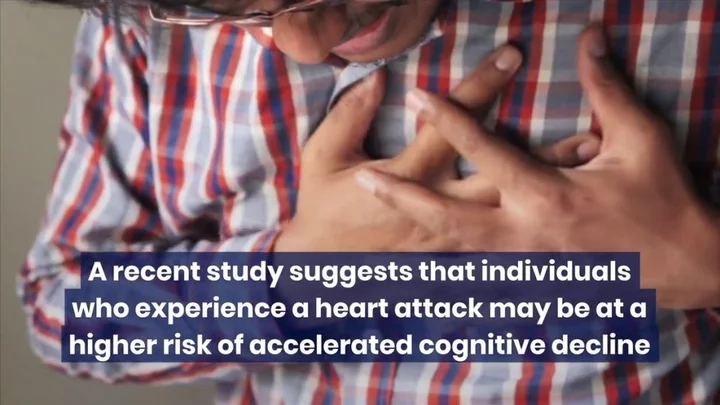
Scientists have worked out the most common days of the week for heart attacks
Research has been revealed that shows which day of the week heart attacks are most likely to take place. According to a new study, the most severe types of heart attacks are more common on Mondays than any other day. STEMI attacks are the most severe forms of attacks, which are caused by a blockage of the coronary artery and see an interruption to the blood supply. A total of 10,528 patients were analysed as part of new research, with the study focusing hospital cases in Ireland and Northern Ireland between 2013 and 2018. Sign up to our free Indy100 weekly newsletter The findings were presented at the British Cardiovascular Society (BCS) conference in Manchester. The data shows that the risk of an STEMI-type heart attack were 13 per cent greater on a Monday compared to the average of other days. Cardiologist Jack Laffan from the Belfast Health and Social Care Trust said at the conference: "We've found a strong statistical correlation between the start of the working week and the incidence of STEMI. This has been described before but remains a curiosity." Laffan also considers it likely that the natural cycle of weeks, months and seasons has on our health. He said: "Based on what we know from previous studies, it is reasonable to presume a circadian element". Nilesh Samani, medical director at the British Heart Foundation, added: "This study adds to evidence around the timing of particularly serious heart attacks, but we now need to unpick what it is about certain days of the week that makes them more likely. "Doing so could help doctors better understand this deadly condition so we can save more lives in future." It comes after a woman revealed how when she was a teenager she mistook a heart attack for butterflies, after dancing with a boy for the first time. Have your say in our news democracy. Click the upvote icon at the top of the page to help raise this article through the indy100 rankings.
2023-06-18 14:18

Biden to Counter Trump With Focus on Economy Not Indictments
President Joe Biden plans to press his economic case for reelection at a campaign kickoff rally, setting up
2023-06-18 01:46
